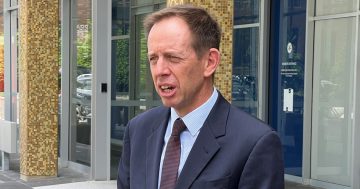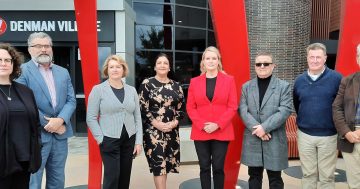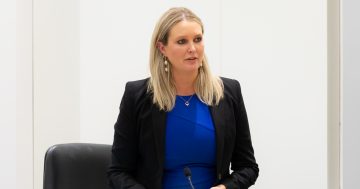
The ACT Government has established a new ministerial advisory council to reduce the harm of poker machines. Photo: File.
Gaming reform has been a slow-moving beast, but the fact that gambling harm is recognised as a public health issue and the ACT continues to review harm minimisation measures for pokies speaks volumes, according to gambling-reform advocate and founder of The Hope Project, Kate Seselja.
Ms Seselja almost took her own life nine years ago following a decade-long poker-machine addiction. She has been advocating for change in this space ever since.
Reform in the Territory has taken another step forward with a reduction of pokie licences, $5 bet limits and $100 load limits all on the agenda for a new ministerial advisory council that met for the first time last week.
Comprising gambling reform advocates, the United Workers Union (UWU) and club presidents, the ACT Community Clubs Ministerial Advisory Council was commissioned by Gaming Reform Minister and Attorney-General Shane Rattenbury.
Ms Seselja said the ACT, or at least clubs, would become pokie-free in an ideal world due to the harm that they cause in a community space.
“Unfortunately, clubs are social spaces and you enter them without thinking, ‘you know what, today I am going to get a gambling addiction’,” she said after first being introduced to the machines because she wanted to spend more time with her then boyfriend.
“It is the engagement with a product that is harmful, that is dangerous and [it is about] helping people understand the impacts so they can seek help.”
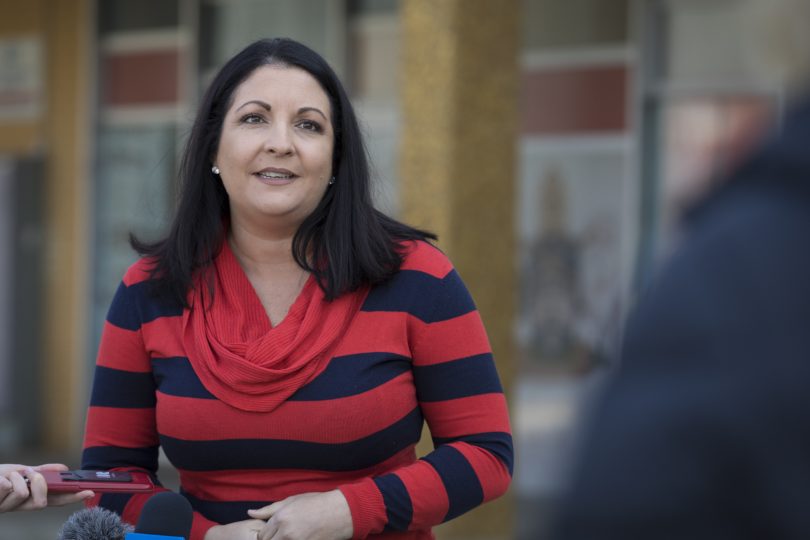
Kate Seselja almost took her life because of her gambling addiction. Photo: Michelle Kroll.
President of ClubsACT Kim Marshal said clubs were committed to diversifying their revenue streams away from gaming but that the current revenue raised was being put back into the community because clubs were not for profit.
There was a low measure of gambling harm in the ACT, but clubs are not skirting responsibility on the issue, Ms Marshal said.
“We believe the measures in place in venues are right because we can intervene when we see something wrong,” she said.
Mr Rattenbury said he would need to work with individual clubs to tailor support packages through the transition process.
“The ACT Government recognises that community clubs play an essential part in the social life of many Canberrans, as a meeting place and sponsor of community events,” he said.
“We want to ensure clubs continue to support the community while introducing and strictly enforcing measures to further reduce harm from gaming.
“Based on their diverse perspectives and experience, council members will provide valuable insight into how we can support our local clubs while protecting vulnerable community members from gambling harm.”
However, Ms Seselja raised some concerns about the gaming industry crafting its own harm minimisation measures.
“It has to be consumer-focused and not [focused on] the protection of the industry,” she said.
“As long as it is done with visibility and responsibility of registry bodies and consultation with lived experience, then I think we will all be on the same page.”
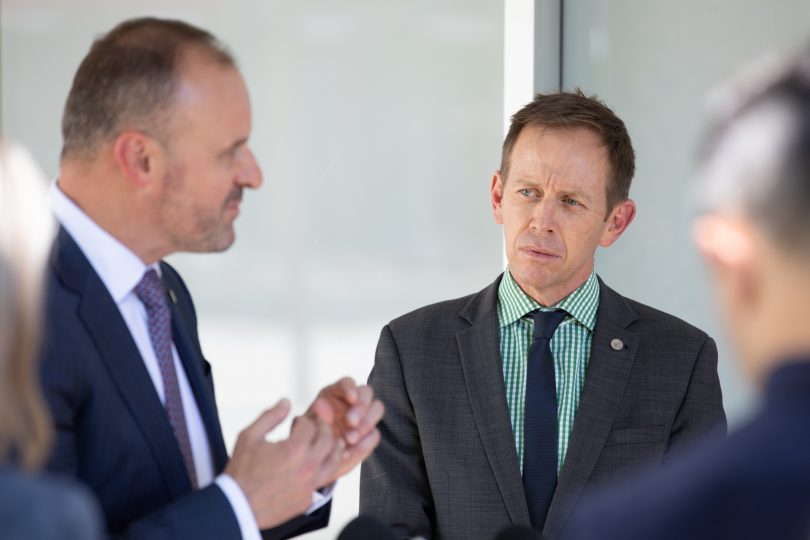
Greens leader Shane Rattenbury wanted to progress with gaming reform before the last election. Photo: Michelle Kroll.
The issue has proved a wedge issue for Labor and the Greens in the past, with the smaller coalition partner wanting to go further, quicker.
The Greens tried to capitalise on the closure of clubs during the pandemic to lower bet limits and load limits, but Labor did not want to act ahead of the October 2020 poll.
Then-ClubsACT CEO Gwyn Rees called the proposal “unhelpful”, while then-Attorney-General Gordon Ramsay said the issue warranted community discussion after the election.
Mr Ramsay, who lost his seat at the election, recently landed a new role as CEO of the nationally based Alliance for Gambling Reform.
The Parliamentary Agreement between Labor and the Greens commits the ACT Government to introduce $5 bet limits and $100 load limits following a review and the creation of a transitional plan for clubs. The staged rollout of reforms is expected to commence by the end of 2022 at the latest.
Pokie licences will also be targeted, with a proposed decrease from 4000 to 3500 in the ACT by 1 July 2025.
The government also committed to match or exceed any further harm reduction gaming reforms implemented in NSW.
The ACT Community Clubs Ministerial Advisory Council includes the founder of The Hope Project, Kate Seselja; CEO of the ACT Gambling and Racing Commission, Yu-Lan Chan; founder and co-chair of the Canberra Gambling Reform Alliance, Jeremy Halcrow; UWU Secretary, Lyndal Ryan; chair of Canberra Community Clubs, Athol Chalmers; ClubsACT president, Kim Marshall; and the presidents of the Canberra Bowling, Irish and Labor clubs.












